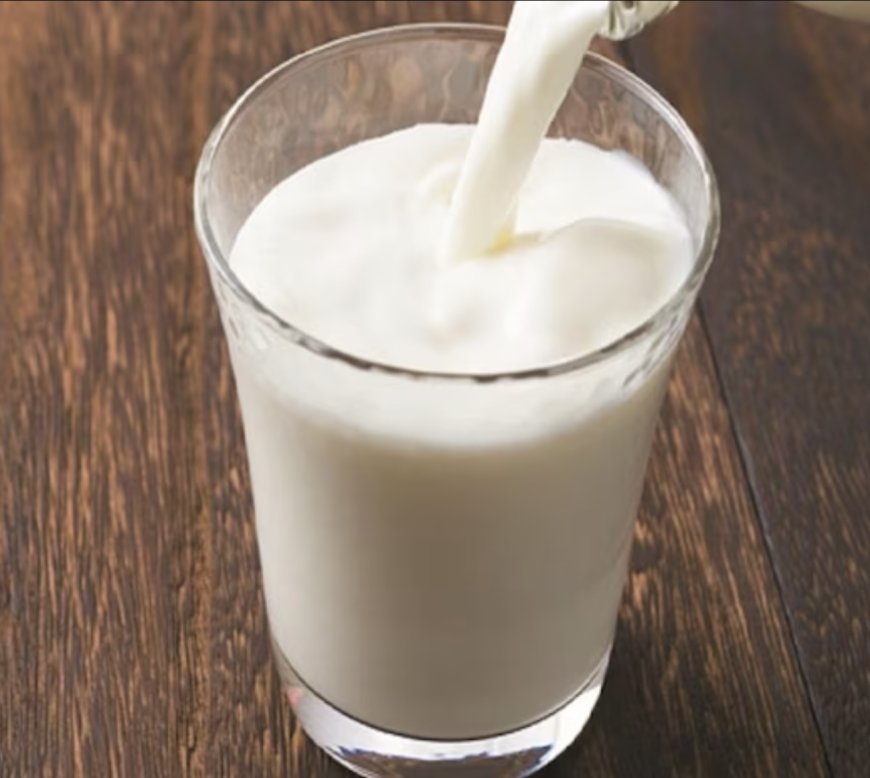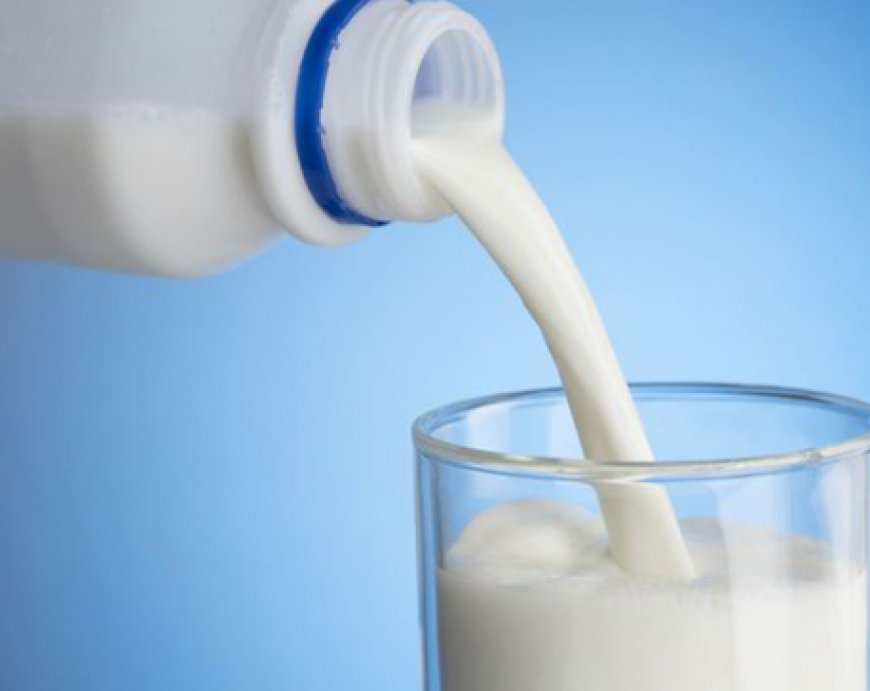Everything About Milk. It's Types, Benefits, and Nutrition
Find out everything about milk with different types of milk, their nutritional benefits, health impacts, possible drawbacks, and nutritional guidelines.
Milk is a nutritious liquid produced by mammals and plants. Humans being primary consumers of milk along with animals such as cows, goats, sheep, cats, and dogs. As a result of the popularity of plant-based eating habits, various alternatives to traditional cow's milk have been introduced. Knowing the differences in these milk types, along with their nutrients and health advantages, will help you to choose milk that is best for you. This article will guide you through the sources and types of milk, as well as its advantages and disadvantages, with nutrients found on milk , with recommendations on how to use it.
Sources of Milk
-
Animal Milk:
-
Cow Milk: The most commonly consumed milk throughout the world, rich in essential nutrients.
-
Goat Milk: Easier to digest than cow milk, with a slightly tangy flavor.
-
Sheep Milk: Higher in fat and protein, making it a richer and creamier option.
-
Buffalo Milk: Known for its thick consistency, it's commonly used in dairy products like mozzarella cheese.
-
Plant-Based Milk:
-
Almond Milk: Made from ground almonds, it’s low in calories and high in vitamin E.
-
Soy Milk: A popular alternative, especially for those with dairy allergies, it’s rich in protein.
-
Oat Milk: Known for its creamy texture, oat milk is a good source of fiber.
-
Coconut Milk: Derived from the flesh of coconuts, it’s high in healthy fats.
-
Cashew Milk: Creamy and slightly sweet, it’s lower in calories than some other nut-based milks.
-
Rice Milk: Light and sweet, often used by those with multiple food allergies.
-
Pea Milk: A newer plant-based option, similar in protein content to cow's milk but with a lower bioavailability.
-
Synthetic Milk:
Synthetic milk, also called lab-grown milk or precision fermentation milk, is an innovative food item produced using advanced biotechnology. Contrary to regular dairy milk obtained from animals, synthetic milk is created in a lab using genetic modification of microorganisms such as yeast or bacteria to produce milk proteins. The process of creating Artificial milk will be discuessed further.
Types of Milk and Their Nutritional Value
Benefits of consuming milk for health.
-
Healthy Bones and Teeth: Milk contains high levels of calcium, essential for maintaining strong bones and preventing osteoporosis. The vitamin D found in fortified milk also helps with the absorption of calcium.
-
Muscle Health: Milk protein aids in muscle tissue repair and new muscle development, making it a great choice for a post-exercise beverage.
-
Heart Health: Milk contains potassium, which is beneficial for controlling blood pressure and lowering the chances of heart disease.
-
Hydrating Body: Water content in milk is approximately 87%, making it both a hydrating drink and a source of important nutrients.
Possible drawbacks of consuming milk.
-
lactose intolerance: Many individuals suffer from lactose intolerance, which hinders their ability to digest lactose, the sugar present in milk. This may result in gastrointestinal problems such as bloating, flatulence, and diarrhea.
-
Allergy: Cow's milk allergy is prevalent among children and can lead to symptoms that range from hives to anaphylaxis.
-
Heart disease: Whole milk and specific dairy products contain a high amount of saturated fat, which can lead to heart disease if consumed excessively.
-
Worries exist regarding the existence of hormones and antibiotics in conventional milk, prompting certain consumers to opt for organic or hormone-free choices.
Who should not drink milk?
-
People with lactose intolerance should refrain from consuming normal milk and choose lactose-free options instead.
-
Individuals who have a milk allergy need to steer clear of all types of dairy products, such as cow, goat, and sheep milk.
-
Individuals with chronic kidney disease should restrict their consumption of dairy products because of their elevated levels of potassium and phosphorus, which may cause challenges for kidneys that are already compromised.
How to get the most benefits from drinking milk.
-
Consuming milk together with meals can enhance the body's absorption of fat-soluble vitamins like vitamins A, D, E, and K.
-
Consuming milk before or after a workout can help with muscle recovery and give long-lasting energy.
-
Drinking warm milk before going to bed is a common way to relax and improve sleep quality, due to its tryptophan levels.
Meal That Can Be Created At Home Using Meal :
Milk is extremely adaptable and can be utilized to make a variety of tasty dishes and drinks in your own kitchen. These are a few common choices:
- Milk Tea: Milk tea is a soothing drink created by steeping tea in milk, adding sugar, and flavorings such as cardamom or ginger.
- Paneer: Paneer is a soft, fresh cheese that is created by curdling milk with either vinegar or lemon juice, commonly utilized in Indian cooking.
- Yogurt: Make homemade yogurt by fermenting milk with a yogurt starter to achieve a creamy consistency.
- Cheese: Different varieties of cheese like ricotta, mozzarella, or cottage cheese are produced through curdling milk and then working the curds.
- Ghee: Ghee is produced by clarifying butter made from milk and is a common ingredient in various culinary traditions.
- Milkshakes: Milkshakes are created by mixing milk with ice cream, fruits, or flavors to make a satisfying and refreshing dessert.
- Rice Pudding: Prepare rice in milk along with sugar, cinnamon, and nuts to create a decadent, soothing dessert.
- Butter: Churn milk cream to make fresh butter in a homemade manner.
- Hot Chocolate: A comforting beverage made with milk, cocoa powder, and sugar for a luxurious and comforting treat.
- Bechamel Sauce: An iconic white sauce created with milk, butter, and flour, commonly utilized as a foundation for various recipes.
Types of Milk With Their Nutritional Value
| Type of Milk | Calories (per cup) | Protein (g) | Fat (g) | Calcium (% DV) | Vitamin D (% DV) | Key Minerals |
|---|---|---|---|---|---|---|
| Cow Milk (Whole) | 150 | 8 | 8 | 30 | 15 | Phosphorus, Potassium |
| Skim Milk | 90 | 8 | 0 | 30 | 15 | Magnesium, Potassium |
| Goat Milk | 170 | 9 | 10 | 30 | 15 | Magnesium, Phosphorus |
| Sheep Milk | 175 | 14 | 9 | 30 | 10 | Calcium, Zinc |
| Buffalo Milk | 237 | 9.2 | 16 | 32 | 14 | Phosphorus, Potassium |
| Almond Milk | 30 | 1 | 2.5 | 25 | 10 | Vitamin E, Magnesium |
| Soy Milk | 100 | 7 | 4.5 | 25 | 10 | Iron, Magnesium |
| Oat Milk | 120 | 3 | 5 | 25 | 20 | Fiber, Iron |
| Coconut Milk | 45 | 0.5 | 4 | 10 | 2 | Iron, Potassium |
| Cashew Milk | 150 | 5 | 12 | 20 | 10 | Magnesium, Copper |
| Rice Milk | 120 | 1 | 2.5 | 20 | 10 | Iron, Magnesium |
| Pea Milk | 70 | 8 | 4.5 | 10 | 10 | Phosphorus, Potassium |
Process of creating Artificial Synthetic Milk?
- Genetic engineering: Researchers identify the exact genes that create milk proteins.
- Modification of microorganisms: The genes are added to a host organism, usually yeast, that is subsequently cultivated in a regulated setting.
- Protein Production: The genetically engineered yeast creates the milk proteins, which are later extracted and purified.
- Creation: The proteins are mixed with fats, carbohydrates, and vitamins to make a product that closely mimics the taste, texture, and nutritional content of traditional milk.
Milk, available in different varieties, is a healthy and adaptable drink. Understanding the nutritional content and possible health effects of traditional cow's milk and plant-based alternatives can assist you in selecting the most suitable option for your dietary requirements, whether you prefer one or the other. Although cow's milk is a complete source of necessary nutrients, alternatives such as almond, soy, and oat milk provide distinct advantages that suit various dietary needs and limitations. By selecting the appropriate kind of milk for your requirements, you can reap the health advantages of this vital drink while sidestepping possible disadvantages.
Referance Link :
- Different Types of Milk: A Dairy & Plant-Based Milk Guide
- 16 types of milk: Dairy, nut, plant & more
- What Kind Of Milk Is Best? Types of Milk and Milk Alternatives Explained
- Types of Milk Explained
What's Your Reaction?










































